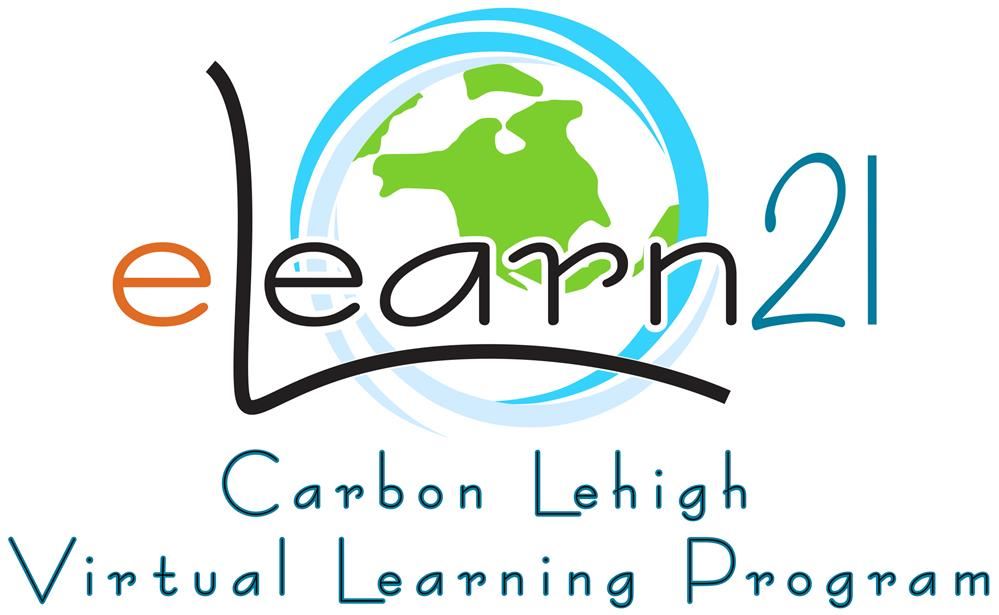- Carbon Lehigh Intermediate Unit
- eLearn21
Curriculum & Instruction/Educational Technologies
Page Navigation
eLearn21
-
Our Mission
To provide learning options that engage and encourage success and positive achievement for every student.Our Vision
In collaboration with member districts and schools, eLearn21 strives to increase and extend learner options for achieving common goals. We accomplish this by developing and implementing a regional, comprehensive, and student-centered learning solution that effectively utilizes the latest technologies and research-based instructional strategies.Curriculum
Online course providers offered through the eLearn21 Virtual Program offer a rich and engaging curriculum that has been carefully designed to meet academic content standards and quality online learning standards. Not only do course providers undergo a rigorous curriculum review by the CAOLA Consortium every four years to ensure alignment with state standards and local curriculum needs, but select courses from each provider are required to undergo a Quality Matters review to validate adherence to quality online learning design standards.Partnering course providers develop course structures using a foundational Understanding by Design approach. Understanding learner variability, universal design principles allow students to learn by reading, seeing, listening, and doing. Additional built-in tools support emerging readers and multilingual learners through text-to-speech, translation, target dictionaries, and more.
Providing students with multiple and varied ways to demonstrate learning is noticeable throughout the curriculum in each partner provider. Assessment types seen across courses in the eLearn21 Catalog include:
-
Self-checks: As students progress through learning objects, interactive self-check opportunities provide quick formative feedback on key lesson concepts.
-
Formative quizzes: Multiple choice, multiple answer, and short answer questions are part of the formal assessments used to gather students’ understanding and skill development aligned with lesson objectives.
-
Summative exams: Traditional summative assessments typically conclude units or course modules. With a mix of multiple choice, short answer, and free response items, students receive feedback on broad learning objectives.
-
Conceptual and Authentic Assessments: The inclusion of projects, interactive simulations, virtual labs, or research assesses students’ mastery of a bundle of course objectives. These assessments typically result in the creation of a product, report, or presentation with detailed rubrics to align with desired outcomes.
-
Writing Assignments: While writing assessments are always found throughout English/Language Arts courses, writing assessments can be found throughout all content areas asking students to be critical thinkers relating course lessons to our authentic world. Building writing skills by requiring students to outline and draft and review sample writing with clear rubrics is part of this skill development across the curriculum.
-
Benchmarks: Students in grades K-3 are offered 2 written and 3 synchronous benchmarks per semester in Math and ELA. Optionally, DIBELS can be provided in K-5 grades through instructional services.
Developing a catalog with a variety of options that can meet the needs of many is a priority in our curriculum selection. Key highlights of the available eLearn21 curriculum include:
-
K-5 Courses developed with a Structured Literacy model
-
Course provider revisions to support phenomena-based, three-dimensional learning required by STEELS standards.
-
Many courses are segmented into quarter parts to align with traditional campus marking periods. Allows for appropriate transitions without extending entry or exit wait times.
-
Secondary courses with multiple academic levels to support varying student learning needs.
-
Career-ready programming allows for career cluster exploration in middle grades with courses leading to industry credential preparation in high school grades.
-
A selection of dual enrollment courses provided by colleges and universities across the country.
-

Contact eLearn21
-
Help Desk Support
elearn21-help@cliu.org
1-855-435-3276Learn more
Melissa Volcskai, Program Facilitator
volcskaim@cliu.orgTony Mirabito, Program Facilitator
mirabitoa@cliu.orgEric Lech, Program Director
leche@cliu.org
